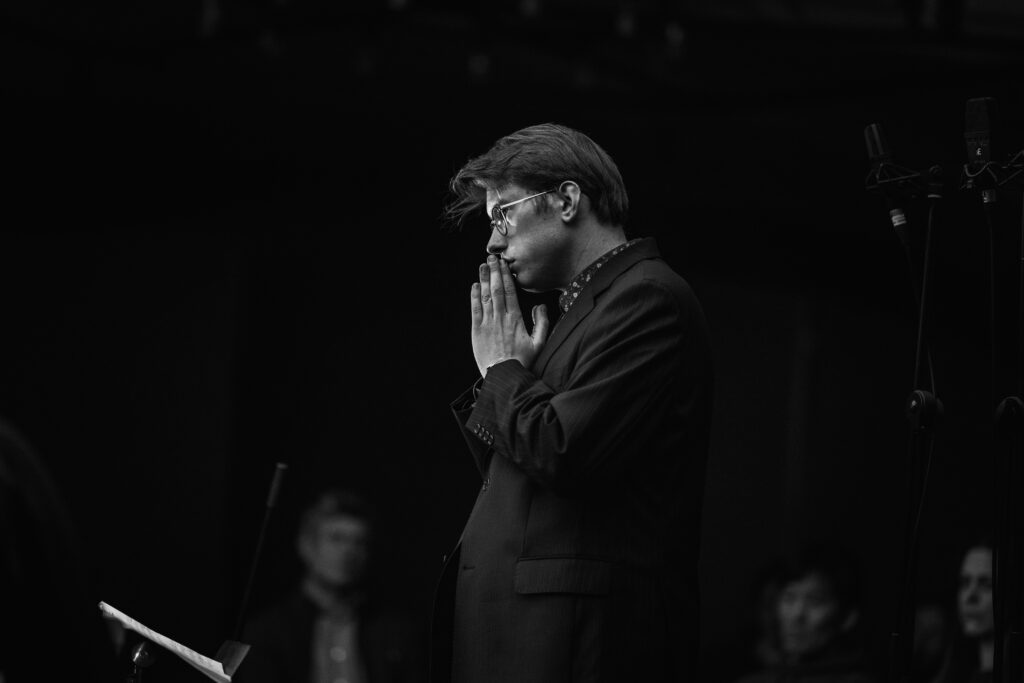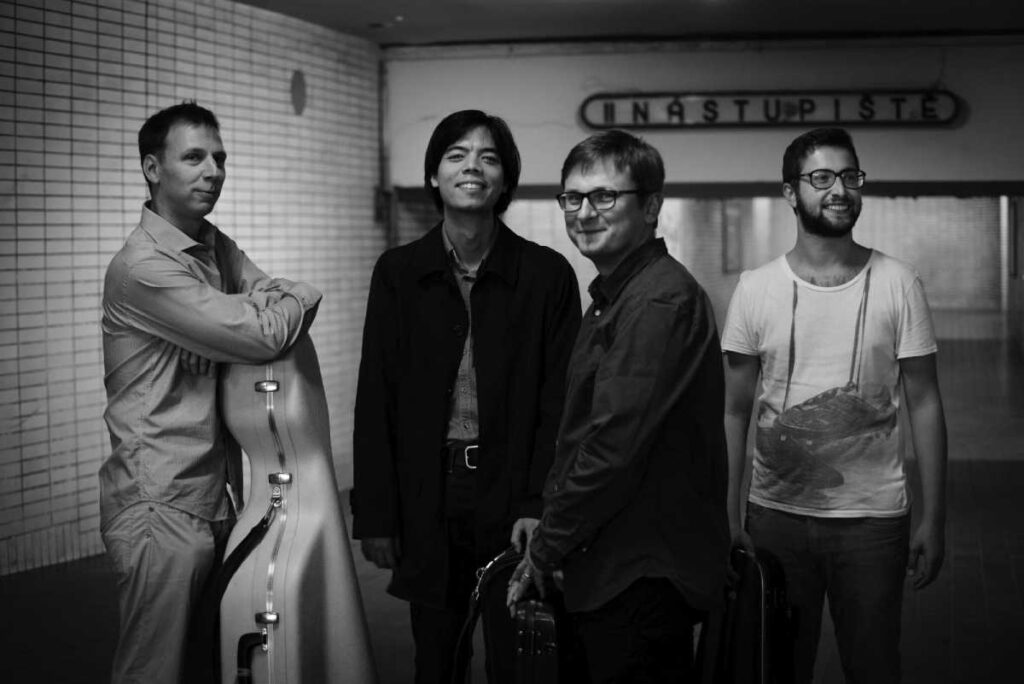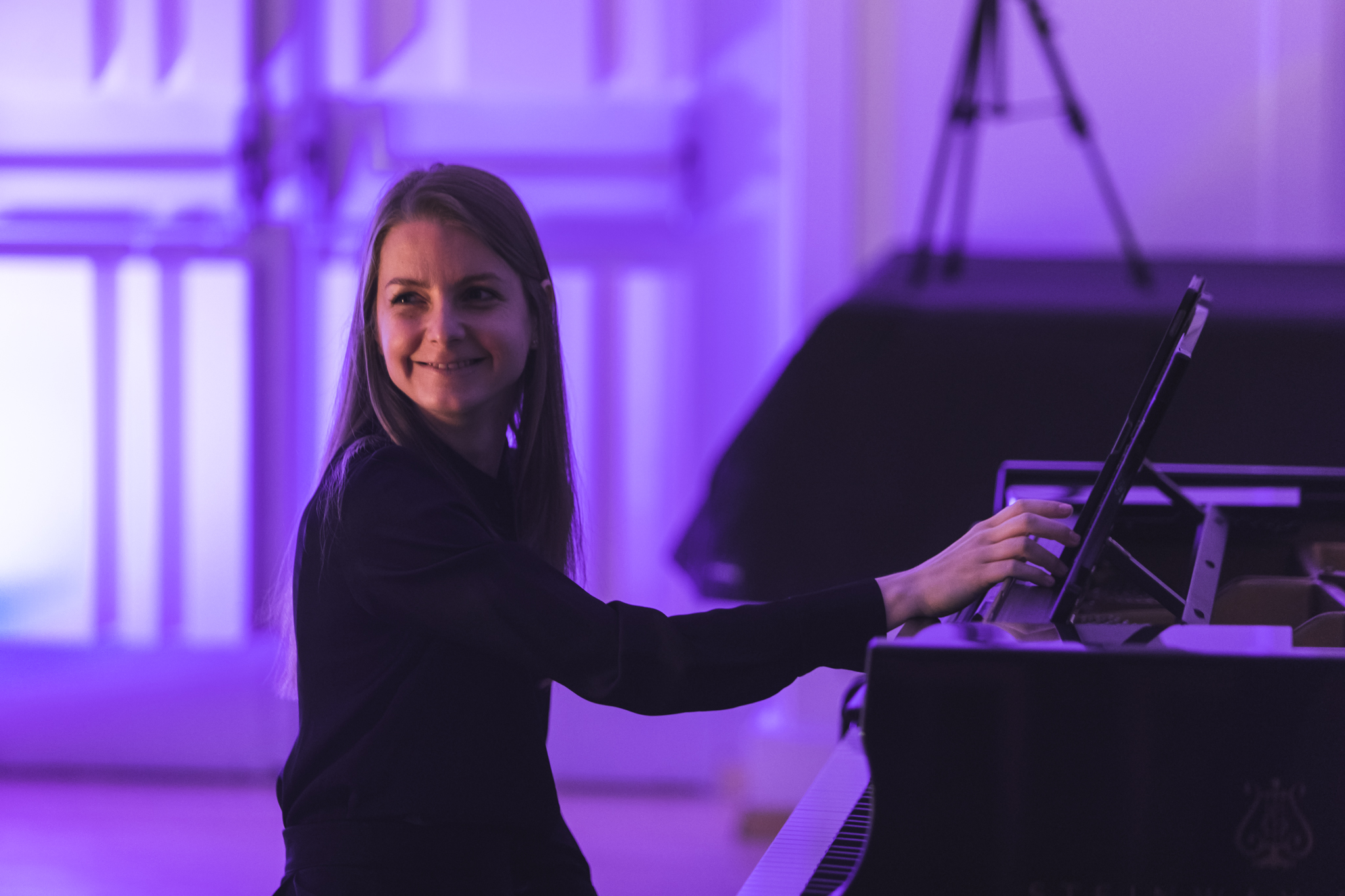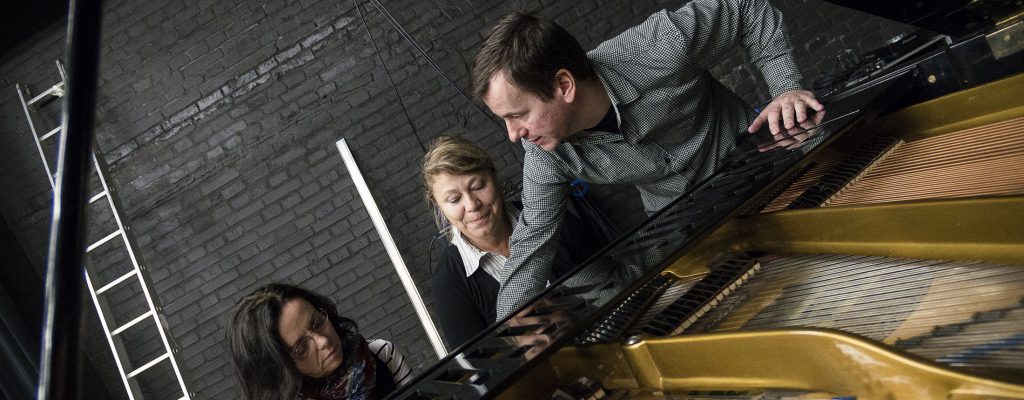30 May 2025 – TRENČÍN, Refectory Hall of the Piarist Grammar School
The hluk:zvuk platform, founded earlier this year by a group of young Slovak artists, aims to create space for radical contemporary music in all its sonic richness—uncompromising and fearless. One of its first concert evenings, titled nocturnal.lament, revolved around a central question: can music still convey sorrow, longing, reconciliation—or has today’s musical language abandoned these “romantic” dimensions altogether? The search for an answer unfolded through works that speak to today’s listener from a variety of temporal and aesthetic vantage points, yet share a common ambition—to profoundly stir the inner world.
Arnold Schoenberg’s Verklärte Nacht (Transfigured Night)—an iconic work straddling the 19th and 20th centuries, echoing post-Romantic expressivity while pointing toward new musical frontiers—opened the evening with a sense of hushed anticipation. The ensemble Prague Modern, under the baton of Dávid Danel, delivered a technically brilliant and emotionally charged interpretation. The string sextet filled the space with a dense, sculptural tone that seamlessly shifted from intimate polyphonic textures to powerful unisons. The atmosphere of night, blurred harmonies, and dramatic dynamic swells created a striking, almost visual experience. The final major-key resolution, coinciding with the setting sun casting its light into the hall, became a kind of audiovisual catharsis.
Following this dramaturgically conventional but artistically compelling opening came the premiere of .jouissance_l, a vocal-instrumental composition by Slovak composer, conductor, and hluk:zvuk co-founder Patrik Kako. Drawing inspiration from Claudio Monteverdi’s famous Lamento d’Arianna, Kako sought to transpose its emotional weight and early Baroque harmonic language into a framework of radical sonic experimentation and the expressive vocabulary of contemporary music. Vocalist Anabelle Plum, known for her work in jazz and new music, delivered an extraordinary performance. From intoned phrases to sighs, cries, and guttural growls, her vocal technique was breathtaking. Her expression hovered between ecstasy and anguish, forming a symbiotic dialogue with the string ensemble and harp. The piece embodied both suffering and desire, outcry and resignation—one of the evening’s most emotionally potent moments.

The concert concluded with a work by contemporary Austrian composer Georg Friedrich Haas, whose compositional style was described in the program as post-spectralist. In his String Quartet No. 5 (2007), Haas explored the spatial dimension of sound—four players positioned in the corners of the room created delicately shifting sonic planes that undulated, dissolved, and merged across the space. This pulsating world of sonority was more than just music—it was sound architecture, an immersive experience requiring openness and deep concentration. The members of Prague Modern delivered the subtlest nuances and sharpest sonic extremes of their instruments with exceptional artistry, allowing the audience to fully absorb this unique auditory landscape.
nocturnal.lament answered its central question not with a didactic stance but with existential conviction. It demonstrated that music continues to embody emotion in continually evolving forms—tracing a trajectory from post-Romantic expression, through vocal experimentation, to spatial sonic structures. The emotional impact of the concert was undeniable—provocative yet beautiful, stirring reflection. The hluk:zvuk platform thus firmly established itself as a valuable contributor to the ongoing conversation about the shape and direction of contemporary music.
Aneta FICKOVÁ




